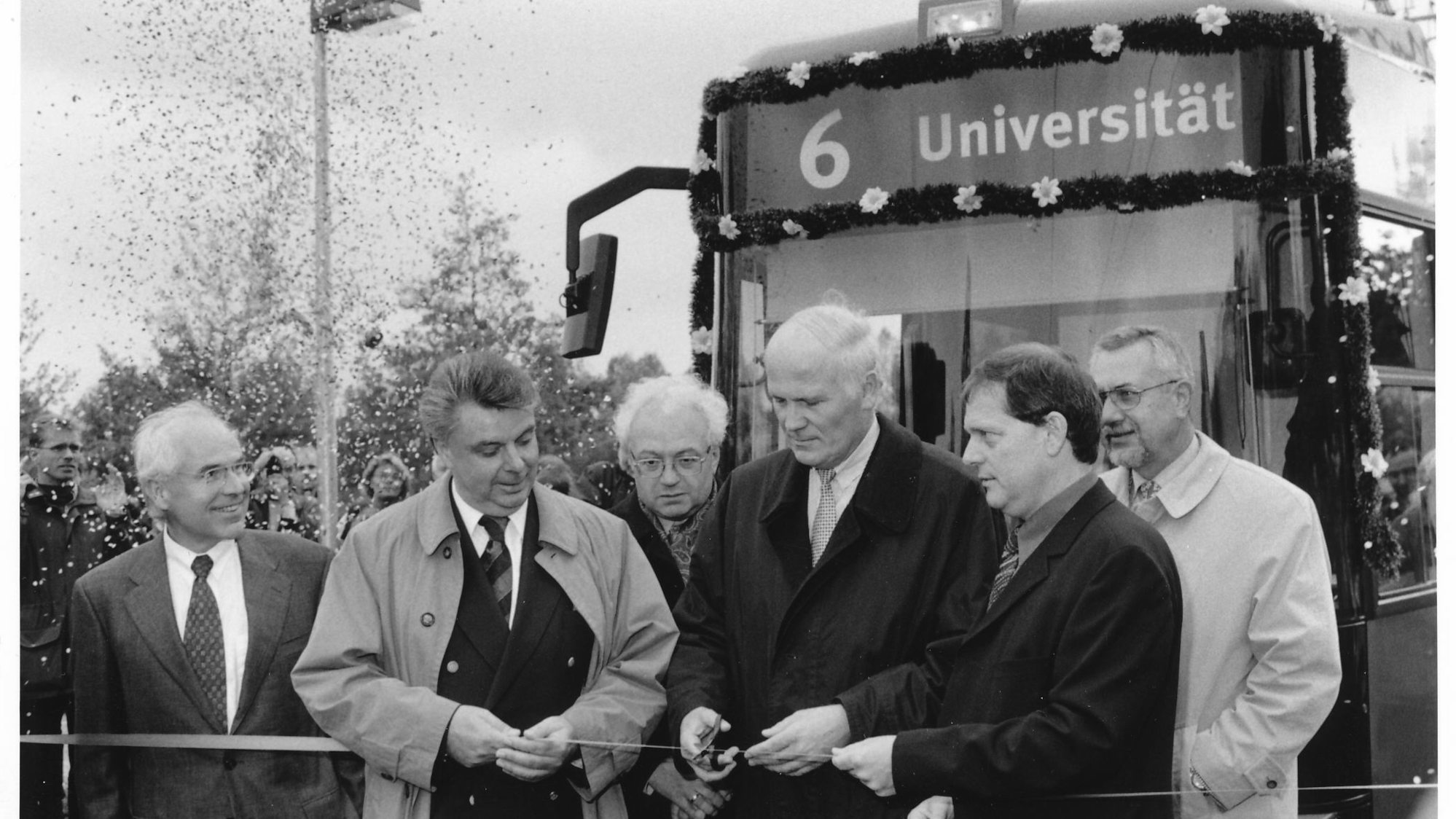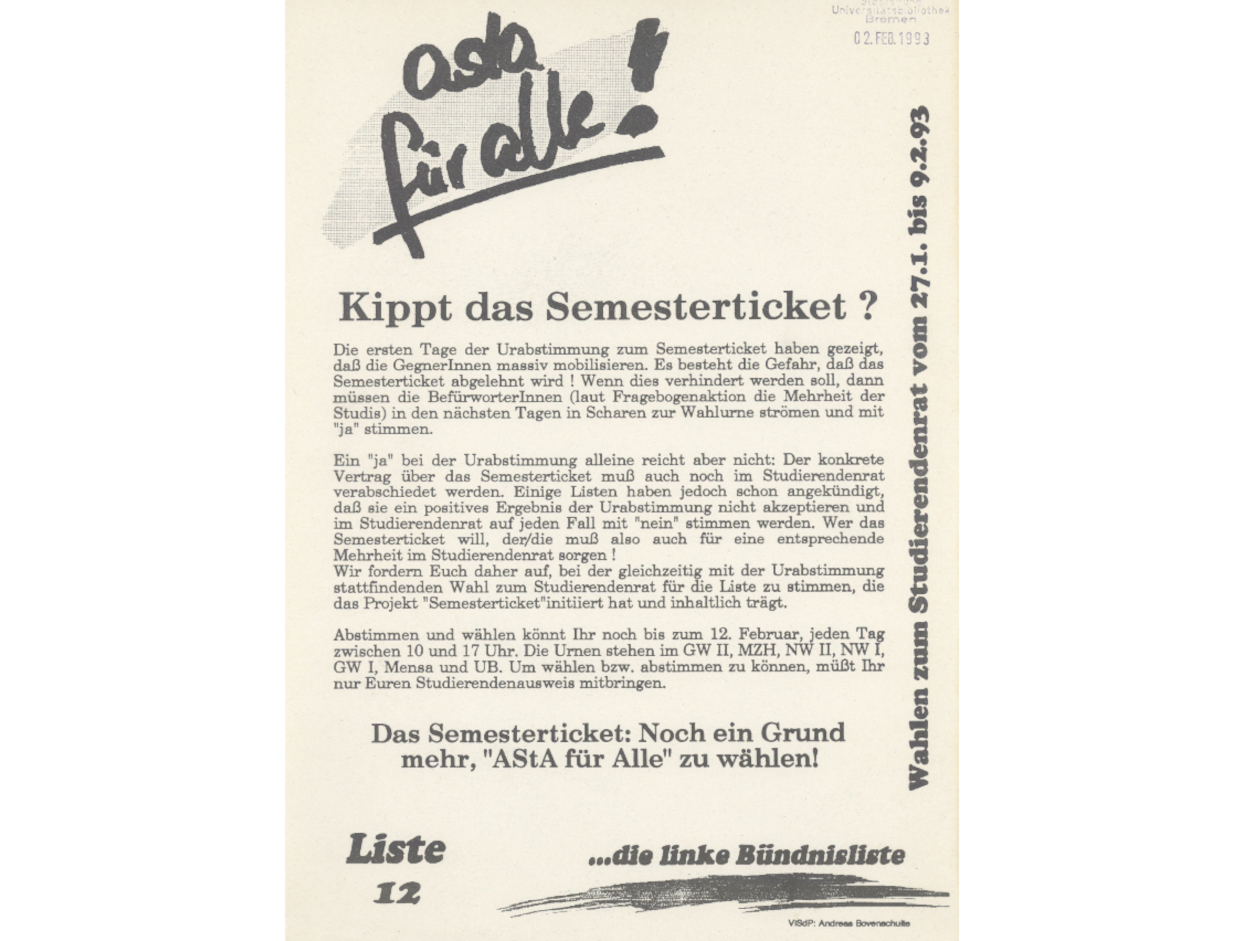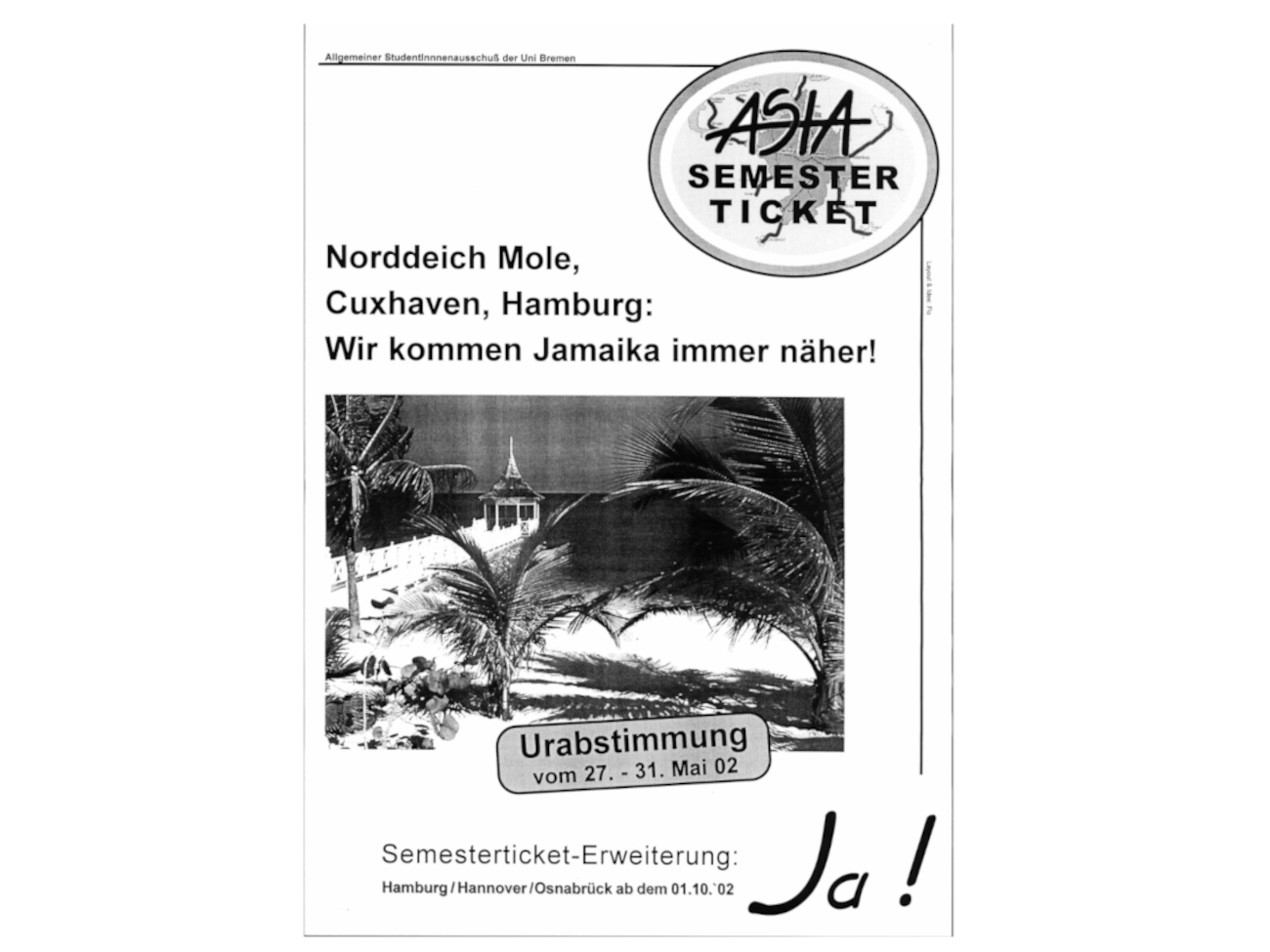
© Harald Rehling / Universität Bremen
Back Then: “The Semester Ticket – Ecological. Socially Fair. Good.”
These are the words the AStA Students’ Union used to advertise for the semester ticket to be introduced in 1992. Why did the introduction take a full two years? And how socially fair was the concept actually?
The discussions about the inception of a semester ticket were quite heated, with strong opinions from the AStA, students, university directors, the responsible parties in the Student Services Organization, the transportation association and the city. Even after the ticket was introduced, it constantly evolved – and continues to do so today.
The initiative to establish the tickets originally came from the university policy department of AStA. They considered alternatives to make the trip to campus more environmentally friendly than by car. The AStA advertised the semester ticket at the time as “the first step towards an ecological and socialy just transportation policy.” AStA members created a flyer with information about the environmental damage caused by driving cars. In addition to the flyer, they distributed a questionnaire among the 16,000 enrolled students asking for information about where they lived, their public transportation use, and their willingness to pay for a semester ticket.
Clear Survey Results
Participation in the survey was unusually high – the AStA received about 6,000 completed questionnaires. The result was clear: 84 percent of the participants were in favor of introducing a semester ticket. Later, when AStA put the decision to a preliminary vote in February 1993, the results confirmed those of the first survey. From then on, several parties, including the Bremen/Lower Saxony Public Transit Association (VBN, then Verkehrsgemeinschaft) and the student unions of the University of Bremen as well as the City University of Applied Sciences, worked together to reach an agreement about the semester ticket. They received support from then President of the University, Professor Jürgen Timm.

© Universitätsarchiv Bremen
Criticism of the Semester Ticket for All
The VBN agreed to consider the idea of a semester ticket, as long as it would not result in a financial loss for them. But how could that be guaranteed? The solution was based on solidarity: all students would pay a semester ticket fee, regardless of whether they used public transportation. This would increase the semester fee by 74 DM. However, this was the point where paths diverged – after the re-registration deadline for the summer semester 1994, dozens of students asked AStA to waive the semester ticket fee. Several of them explained that traveling by car from Bremen’s suburbs was significantly quicker and more pleasant than using public transportation.
Long Distances between the City Center and the University
This was a non-dismissible argument, since public transportation was not nearly as well developed in 1994 as it is today. Only one bus line with infrequent services connected the university with the city center, and Bremen-Nord was also poorly connected to the university. Tram line 6 was not extended to the university until 1998. Criticism came from students who lived close to campus or were decided bicycle or car users as well. The ticket was better received by students of the Bremen City University of Applied Sciences, since the university’s central location was better serviced with public transportation.
Reluctance from the City and the Student Services Organization
The idea of a semester ticket was not well received outside of the university either. City officials feared it would result in fewer students moving to Bremen, which would lead to less funding from the municipal financial equalization. There were legal obstacles as well, since AStA had no legal right to collect fees for the ticket. This is why the amount was supposed to be collected together with the fee for the Student Services Organization.

© Universitätsarchiv Bremen
New Possibilities with the Deutschland-Ticket
The Student Services Organization was less than thrilled about this suggestion, as they feared the increase in fees would damage their reputation. In the end, however, they agreed to this procedure. The many students who had complained to AStA about the introduction of the semester ticket were not able to get their way – those who refused to pay the fee did not receive their enrollment documents. Thus, the semester ticket made its way into the hands of the students in the summer semester of 1994 and is now used as a matter of course by the majority of students. The range in which the semester ticket is valid has also been greatly expanded since it was introduced – while it originally was only valid in Bremen and the surrounding area, the statewide semester ticket now allows for travel in all of Bremen, Lower Saxony, and Hamburg. For those who want to be mobile in the rest of Germany as well, there are new possibilities with the Deutschland-Ticket, which students can obtain by upgrading their semester ticket.